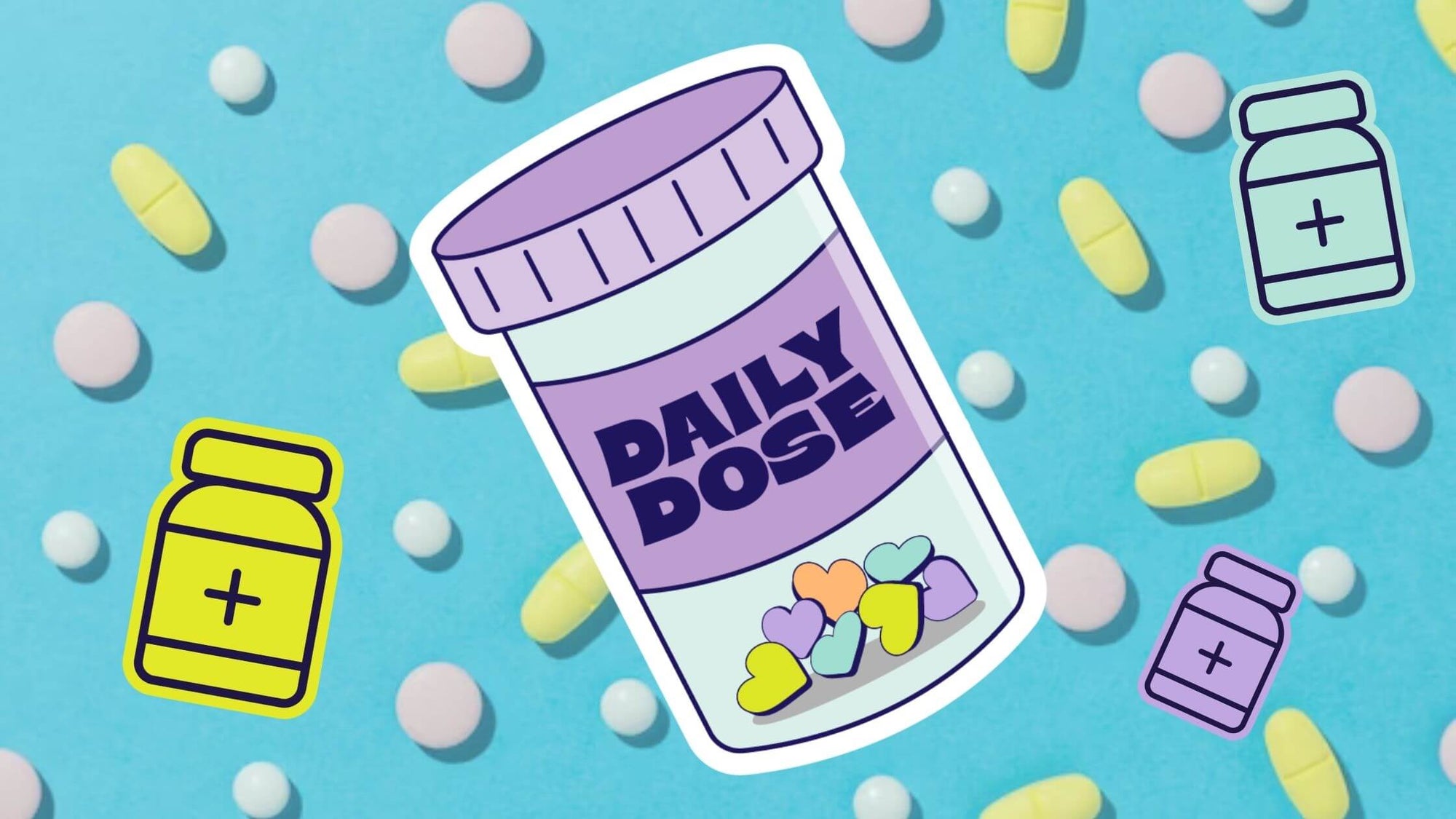Water retention refers to when your body holds onto more water, causing puffiness under the skin and swollen hands, legs, and ankles (oedema). A small amount of water retention might not be noticeable. However, if your body is holding onto a large volume of water, it can cause a lot of discomfort.
Thankfully, there are steps you can take to reduce or even eliminate unwanted water retention in your body. We’re going to cover our top tips for this below, but first, let’s cover what water retention is, the causes of increased water weight, and the key signs and symptoms that indicate your body is holding onto more fluids than it should.
What Is Water Retention?
Water retention, medically known as oedema, refers to the accumulation of fluid in the body’s tissues. Although the body contains a large volume of water in normal circumstances, most of this fluid is kept inside the cells. Oedema occurs when some of this water moves out of the cells and into the interstitial space for whatever reason.
Water retention can lead to puffiness and swelling. It can be uncomfortable and can knock your self-esteem if it becomes severe. Most commonly, it affects the peripheries (hands, lower legs, ankles, and feet), where blood circulation and waste removal are less efficient.
What Are the Signs of Water Retention?
You’ll most likely notice water retention when it becomes moderate to severe. However, it’s important to look out for its common signs and symptoms so you can spot it as soon as possible and take action to reduce it.
The signs and symptoms of fluid retention include:
- Bloating in the abdominal area, leading to a feeling of fullness and tightness
- Swollen hands, lower legs, ankles, and feet
- Weight gain
- A shiny appearance to the skin in affected areas
- Redness or a purple hue to the skin in affected areas
- Stiff joints due to swelling and inflammation
You might notice that the rim of your socks leaves a slight indentation in your skin due to pressing on your swollen ankles. When you lightly press on your skin where water retention is most severe, the indentation might remain for a few seconds. This is known as pitting oedema.
What Causes Water Retention?
Mild water retention can occur at any time, and it comes and goes, depending on your diet and hydration status. Many women experience an increase in water weight bloating around their period due to fluctuations in oestrogen and progesterone, but this excess fluid decreases after their monthly bleed when these hormones drop in concentration.
However, there are many causes of moderate to severe chronic water retention or oedema. Chronic water retention refers to an ongoing problem that can affect movement and quality of life.
Causes of acute water retention
Short-term water retention can result from the following things.
1. Dehydration
Inadequate water intake can cause your body to freak out a little bit and hold onto excess water to make up for the lack of liquids in your diet. As a result, being dehydrated can lead to puffiness and oedema.
Similarly, drinking a lot of diuretics (such as caffeinated coffee, energy drinks, or alcohol) that cause you to excrete more urine can cause you to become dehydrated and increase the risk of water retention. To hydrate your body properly, you would need to drink more plain water to counteract the diuretic effects of caffeine-containing drinks and alcoholic drinks.
2. High dietary sodium intake or low protein intake
Sodium causes your body to retain more fluids. It also causes you to feel more dehydrated. Both of these side effects of sodium can lead to increased fluid retention and bloating throughout the body.
If you don’t eat enough protein, it causes low protein levels in the blood. This interferes with the usual exchange of fluids that occurs between your tissues and capillaries, leading to more water remaining in your tissues. A high volume of tissue fluid leads to oedema.
3. Hormonal fluctuations
Menstruation, pregnancy, and menopause are causes of temporary fluid retention and hormonal bloating. Oestrogen and progesterone can influence water balance and regulation in the body. Changing levels of these hormones result in your body holding onto more water, leading to bloating, swelling, and puffiness.
Similarly, a temporary increase in the stress hormones cortisol and adrenaline can increase the volume of water that your body holds onto. These hormones can also reduce blood flow to the peripheries (hands and feet), making fluid exchange less efficient in these areas of the body and increasing the risk of oedema.
4. Long periods of standing up or sitting down
Standing up for long periods of time, such as if your job involves you being on your feet or you’re waiting in queues at a theme park all day, can cause blood to pool in your lower legs and feet. This can lead to temporary oedema that should subside when you’re able to sit down and elevate your legs.
On the other hand, if you’re sitting down for hours on end, such as when you’re travelling or going on holiday, it can limit your blood circulation and cause increased fluid retention in the peripheries of your body.
5. Acute injuries
If you cut yourself and end up with a wound, your body will respond rapidly by increasing blood flow, fluid retention, and inflammation in the area. This leads to transient swelling around the injury, which is designed to protect this area of the body and prevent further injuries or infections.
Causes of chronic water retention
Ongoing fluid retention in the body can be caused by the following things.
1. Chronic health conditions that interfere with fluid regulation or blood circulation
Cardiovascular disease, hypertension (high blood pressure), heart failure, and chronic kidney disease can be causes of increased fluid retention. Each of these chronic health conditions negatively impacts blood flow, reducing fluid exchange between the tissues and bloodstream and increasing the risk of oedema.
2. Obesity and leading a sedentary lifestyle
Carrying excess body fat can increase pressure on the lower extremities when walking or standing up. Increased pressure can cause more water to remain in the tissues instead of being passed into the bloodstream, where the kidneys can filter it out. Obesity can also cause high blood pressure, which further impacts fluid balance.
If your lifestyle involves a lot of sitting down and you rarely exercise, your risk of obesity and water retention increases. As mentioned above, sitting down for extended periods reduces blood flow and is associated with bloating and swelling in the lower body.
3. Taking certain medications in the long term
Many medications interrupt your body’s ability to regulate fluids and move water from one place to another. These medications include antidepressants, antacids, blood pressure medications, anti-sickness tablets, diuretics, calcium channel blockers, corticosteroids, and anti-inflammatories. Taking any of these medications in the long term can cause you to have chronic oedema.
What Are Some Natural Remedies for Water Retention?
So, what can you do if you’re feeling swollen and puffy? Below, we’ve got some helpful natural remedies for bloating and water retention.
However, note that the best resolution for your oedema will depend mostly on what is causing it. For example, if you have a chronic heart condition, your treatment options and the best remedies for you may differ from someone whose oedema is due to a poor diet.
Keep your chronic health conditions in check
As we spoke about earlier in this article, there are a number of chronic medical conditions that interrupt the fluid balance in your body and cause oedema.
If you suffer from cardiovascular disease, chronic kidney disease, or diabetes, you’ll need to keep on top of your condition. This isn’t just important for reducing water retention and bloating. It’s important for your overall health and well-being.
You might need to take long-term medications to manage your condition, and this is something that you should speak about with a qualified doctor or nurse.
Address hormonal imbalances
Hormonal bloating is common, but significant imbalances in your reproductive hormones can lead to a range of symptoms, including heavy menstrual bleeding, painful periods, irregular or absent periods, and other pre-menstrual syndrome (PMS) symptoms.
If you’re experiencing any of these symptoms alongside water retention, find a gynaecologist or endocrinologist in your area who can help you restore healthy hormone levels, potentially through lifestyle changes and medications. When you keep your hormones in check, your body won’t hold onto unnecessary fluids, and your swelling should go down.
Reduce your stress whenever possible
Those of you who are worriers may experience a lot of water retention in your body during periods of extra stress. One of the most effective remedies for reducing bloating and puffiness is to minimise your psychological stress.
Practising stress management techniques will reduce your cortisol levels and enhance blood flow to your peripheries. In turn, your body can effectively remove excess fluid from the tissues via the bloodstream, and your oedema should subside.
All of this applies to physical stress, too. If you’re constantly on the go or overtraining in the gym, you could put your body through more than it can handle. Physical stress can be just as detrimental to your body as psychological stress and can lead to water retention and other negative symptoms.
To eliminate unwanted water weight, maintain a healthy exercise routine but avoid overdoing it. Make sure you take time to rest your body and mind to keep your cortisol levels optimal.
Support your gut bacteria
An unhealthy gut or lack of diversity in your gut microbiome (the bacteria, viruses, and fungi that reside in your gut) can lead to poor digestion. In turn, this can cause you to develop nutrient deficiencies and experience digestive symptoms like bloating, abdominal swelling, and lower body oedema.
Supporting your gut can help to eliminate digestive issues and keep water retention at bay. A healthy gut correlates to better overall health, too, as shown by many scientific studies.
You can improve your gut health by consuming a healthy diet full of fibre and adequate amounts of each macronutrient and micronutrient. You can also take a probiotic that helps with maintaining a diverse range of microbes in your gut and support your digestion.
Probiotics offer a range of benefits for your gut and gut bacteria. They reduce the growth of pathogenic (harmful) microorganisms in the gut, improve intestinal transit, and maintain a healthy pH level inside the colon. They also aid in vitamin synthesis and toxin neutralisation.
Our well-research probiotic and digestive enzyme supplement, A Dose For Bloating, contains two billion probiotic bacteria and seven digestive enzymes. It can improve your gut health and eliminate unwanted digestive symptoms within just three to four weeks of taking one capsule daily. Head over to our website to learn more about our probiotic supplement.
Eat more potassium and avoid excessive amounts of sodium
Sometimes, tackling water retention requires you to modify your diet. Increasing your potassium intake is one of the best modifications you can make to rebalance your body’s fluid regulation. Potassium counteracts the water-retaining effects of sodium, enabling excess fluids to be drained away from the tissues via the bloodstream or keeping this water inside the cells in the first place.
Potassium-rich foods include bananas, potatoes, broccoli, avocados, dried fruit, and spinach. Add more of these foods into your diet and watch your water weight disappear!
At the same time, it’s a good idea to reduce the amount of junk foods and takeaways you eat. These foods tend to be high in sodium, which causes your body to hold onto more water and draws fluids out of the cells, contributing to oedema. Whilst you can still enjoy your favourite treats, keep them to a minimum to support your health as much as possible.
Don’t forget to check out A Dose For Bloating, the only supplement you need to eliminate excessive bloating, gas, and water retention. If you have any questions about our supplement, get in touch with the team at Wild Dose. We would love to chat with you!









